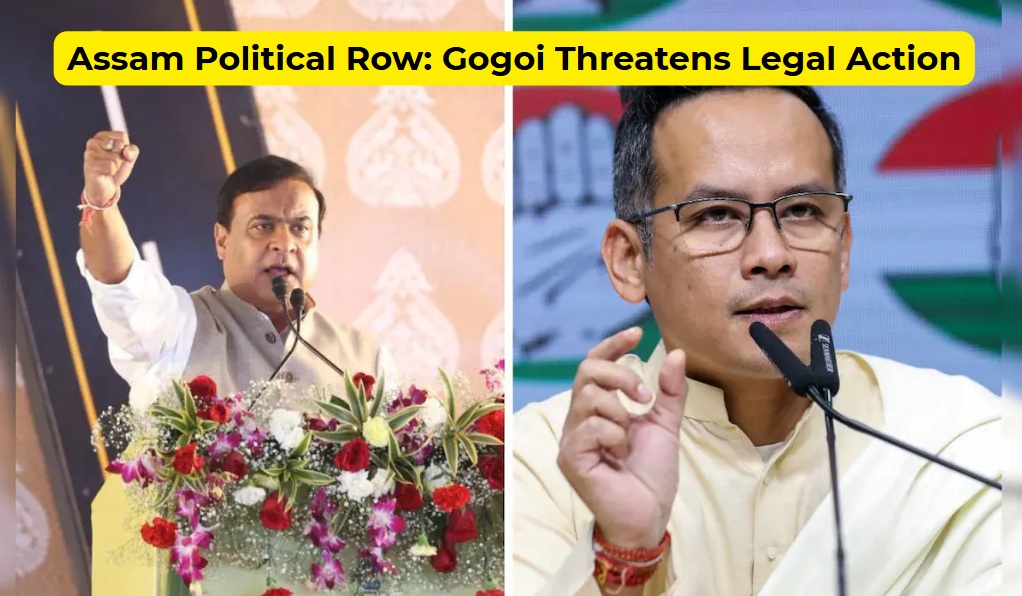“India is not a Dharamshala for infiltrators.” — Amit Shah
Introduction: The War Within the Borders
Illegal infiltration isn’t just a border issue — it’s a battle for India’s sovereignty, internal security, and demographic balance. Union Home Minister Amit Shah, known for his firm stand on national security, has shifted the spotlight to an alarming internal threat: the unchecked entry, settlement, and integration of Bangladeshi infiltrators and Rohingya refugees across Indian states.
This is not just another crackdown. It’s a nationwide operation to dismantle the networks that have quietly enabled demographic disruption and security risks for decades.
Background: Decades of Denial, Politics of Protection
For years, successive governments ignored the growing influx of illegal immigrants from Bangladesh and Myanmar. In fact, many political parties protected and even facilitated these infiltrators for vote bank politics — helping them acquire identity documents and settle in politically advantageous constituencies.
▶️ West Bengal, Assam, Tripura, Delhi, and parts of Uttar Pradesh became hotspots for these settlements.
▶️ Slums mushroomed overnight with non-citizens holding Aadhaar cards, voter IDs, and ration cards — allowing them to live undetected for years.
This wasn’t negligence — it was systematic appeasement, say experts.
The Shah Doctrine: From Surveillance to Deportation
Home Minister Amit Shah has introduced a three-pronged strategy to identify, isolate, and deport illegal immigrants — with zero tolerance and no exceptions.
1. Intelligence-Driven Identification
Aadhaar-Phone Surveillance: Law enforcement now cross-checks phone numbers linked with Aadhaar cards to trace calls to Bangladesh and Myanmar.
Social Media & Digital Forensics: Investigators examine TikTok accounts, WhatsApp groups, Facebook friend lists, and money transfer apps to detect cross-border links.
On-Ground Raids: In Bengal, multiple agents were arrested for forging Aadhaar and election cards for Bangladeshis. These agents operated in collusion with local officials.
2. Tech-Powered Tracking
Every infiltrator is now monitored not just physically but digitally:
Bank transactions
SIM card purchases
Flight, train, and bus bookings
Mobile app behavior
Authorities are watching for remittance trails and communication patterns with people across the border.
3. Nationwide NRC Preparation
The government is preparing the ground for a National Register of Citizens (NRC) to eliminate all non-citizens from the official population records.
Combined with Citizenship Amendment Act (CAA), which protects persecuted minorities from neighboring countries, the NRC will act as the final sieve.
⚖️ Why This Crackdown Is Inevitable — and Essential
The Modi government believes this isn’t just an administrative issue — it’s a national security imperative. Here’s why:
️ 1. Rising Crime in Settled Areas
Police data shows a surge in crimes like:
Snatching
Vehicle theft
Drug trafficking
Sex trade
Child trafficking
in areas densely populated by infiltrators.
2. Economic Drain
Former PM Manmohan Singh acknowledged that internal disturbances and infiltration cost India nearly 2% of GDP annually. That’s billions lost to unproductive subsidies, law enforcement, and lost opportunities.
3. Cultural and Demographic Disruption
Several districts in Assam and Bengal have seen local populations displaced — culturally and economically — due to massive illegal settlements. Some regions now have religious and ethnic imbalance, risking long-term instability.
Politics at Play: Who’s Supporting the Infiltrators?
While the government pushes for cleansing, opposition parties have raised their voices in protest.
Aam Aadmi Party (AAP) in Delhi has opposed evictions of Rohingyas from slum areas.
TMC’s Mamata Banerjee has questioned the intentions behind the NRC and CAA in Bengal.
SP’s Akhilesh Yadav and Congress leaders have accused the Centre of using infiltration as a “divisive narrative”.
Analysts say these parties fear losing a consolidated minority vote bank — hence the resistance.
Foreign Policy Fallout: Will This Strain Bangladesh Relations?
Critics argue that mass deportations and public identification campaigns could damage ties with Dhaka. However, the Centre counters this with three arguments:
Bangladesh is already hostile to India’s interests — some groups like Jamaat-e-Islami and individuals like Dr. Yunus have allegedly collaborated with ISI and radical elements.
Human rights abuses in Bangladesh are creating a real exodus — particularly of Hindus, Christians, and Buddhists.
National security trumps diplomatic niceties — just like India redefined its Pakistan policy, it may need to recalibrate ties with Bangladesh based on ground realities.
A recent quote from a Northeast CM on ANI went viral:
“It’s time to divide Bangladesh again — one for Muslims, and one for minorities.”
Inside the Fear: Why Infiltrators Are Now Fleeing India
Ground intelligence suggests that many Bangladeshis are fleeing BJP-ruled states voluntarily. Why?
They fear surveillance
Aadhaar-matching raids are increasing
Their remittance networks are getting exposed
They fear arrest and deportation
This is being hailed as “deterrence by design” — a psychological operation paired with ground action.
The Bigger Question: What About the Refugee Argument?
Human rights groups argue that Rohingyas are fleeing genocide. But the government contends:
India is not a refugee host nation by law — there’s no formal refugee policy.
Security risks outweigh sympathy — several Rohingyas have been found involved in organized crime, including ISIS sympathizers.
Even Muslim-majority countries like Malaysia and Indonesia have closed their doors to Rohingyas.
Conclusion: India’s Moment of Reckoning
What Amit Shah is doing isn’t just political — it’s historical.
For decades, the infiltration crisis was denied, downplayed, or worse — used for votes. Today, that legacy is being reversed through a combination of policy, technology, and political will.
Yes, it may anger some. Yes, it may disturb international observers. But national security is non-negotiable.
SHARE THIS ARTICLE if you believe India must protect its borders — physically, demographically, and culturally.
Follow us for more bold, unfiltered reporting that others won’t show you.





